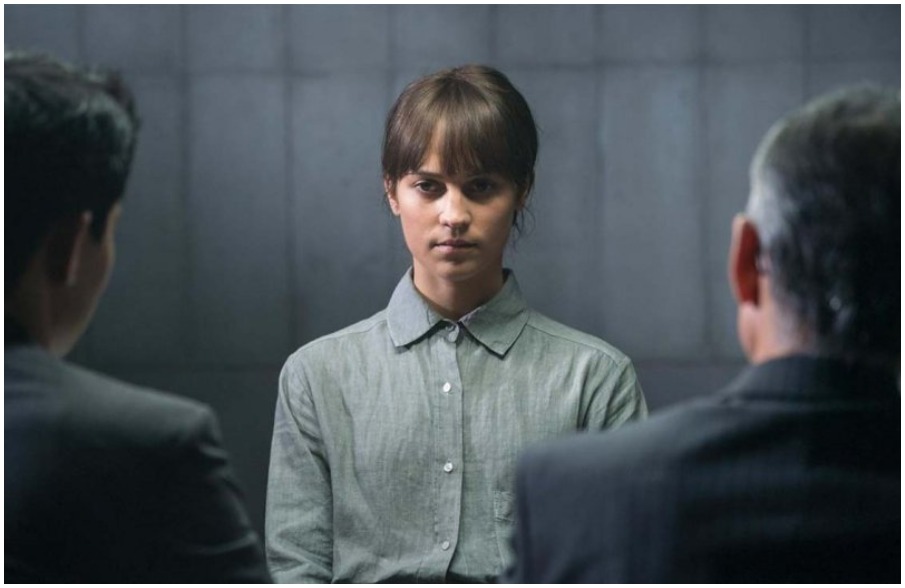98th Academy Awards nominations: Sinners makes Oscars history with 16 nods
With 16 nominations, Sinners becomes the most nominated film in Oscar history, surpassing the long-standing record held by All About Eve, Titanic and La La Land.
Listeners:
Top listeners:
 play_arrow
play_arrow
ENGLISH Channel 01 If English is your language, or a language you understand, THIS IS YOUR CHANNEL !
 play_arrow
play_arrow
ITALIAN Channel 02 Se l’italiano è la tua lingua, o una lingua che conosci, QUESTO È IL TUO CANALE!
 play_arrow
play_arrow
EXTRA Channel 03 FRED Film Radio channel used to broadcast press conferences, seminars, workshops, master classes, etc.
 play_arrow
play_arrow
GERMAN Channel 04 Wenn Ihre Sprache Deutsch ist, oder Sie diese Sprache verstehen, dann ist das IHR KANAL !
 play_arrow
play_arrow
POLISH Channel 05
 play_arrow
play_arrow
SPANISH Channel 06 Si tu idioma es el español, o es un idioma que conoces, ¡ESTE ES TU CANAL!
 play_arrow
play_arrow
FRENCH Channel 07 Si votre langue maternelle est le français, ou si vous le comprenez, VOICI VOTRE CHAINE !
 play_arrow
play_arrow
PORTUGUESE Channel 08
 play_arrow
play_arrow
ROMANIAN Channel 09 Dacă vorbiţi sau înţelegeţi limba română, ACESTA ESTE CANALUL DUMNEAVOASTRĂ!
 play_arrow
play_arrow
SLOVENIAN Channel 10
 play_arrow
play_arrow
ENTERTAINMENT Channel 11 FRED Film Radio Channel used to broadcast music and live shows from Film Festivals.
 play_arrow
play_arrow
BULGARIAN Channel 16 Ако българският е вашият роден език, или го разбирате, ТОВА Е ВАШИЯТ КАНАЛ !
 play_arrow
play_arrow
CROATIAN Channel 17 Ako je hrvatski tvoj jezik, ili ga jednostavno razumiješ, OVO JE TVOJ KANAL!
 play_arrow
play_arrow
LATVIAN Channel 18
 play_arrow
play_arrow
DANISH Channel 19
 play_arrow
play_arrow
HUNGARIAN Channel 20
 play_arrow
play_arrow
DUTCH Channel 21
 play_arrow
play_arrow
GREEK Channel 22
 play_arrow
play_arrow
CZECH Channel 23
 play_arrow
play_arrow
LITHUANIAN Channel 24
 play_arrow
play_arrow
SLOVAK Channel 25
 play_arrow
play_arrow
ICELANDIC Channel 26 Ef þú talar, eða skilur íslensku, er ÞETTA RÁSIN ÞÍN !
 play_arrow
play_arrow
INDUSTRY Channel 27 FRED Film Radio channel completely dedicated to industry professionals.
 play_arrow
play_arrow
EDUCATION Channel 28 FRED Film Radio channel completely dedicated to film literacy.
 play_arrow
play_arrow
SARDU Channel 29 Si su sardu est sa limba tua, custu est su canale chi ti deghet!
 play_arrow
play_arrow
“Conversation with” at the 20th Marrakech IFF, interview with actor Willem Dafoe Bénédicte Prot

PODCAST | Sarah Bradbury interviews Wash Westmoreland, director of the film Earthquake Bird.
British director Wash Westmoreland spoke to us from the BFI London Film Festival premiere of Earthquake Bird about his 1989 Japan-set thriller. He explained why he was inspired to adapt Susanna Jones’ novel, how lucky he was to cast an actress like Alicia Vikander who could play the cello and learn Japanese for the central role and the excitement of putting a female character at the centre of a genre traditionally dominated by men.
Earthquake Bird: Lucy (Vikander) is a buttoned-up, MUJI-clad translator who has been in Japan for five years and is desperate to blend in. Her reticent nature hides old scars. There’s also the fact that people around her keep dying – accidentally or otherwise. After a street encounter with hot photographer Teiji (Naoki Kobayashi), she quickly finds herself under his spell, despite all the warning signs. And the pot is stirred further when American nurse Lily (Riley Keough) – all blowsy sexual confidence and cultural naïvety – arrives in town and Lucy experiences some frightening impulses. Wash Westmoreland (Colette) has crafted a moody and intriguing update on 1980s psycho-sexual thrillers, shifting the emphasis onto the psychology of the female protagonist. Alicia Vikander is astonishing in a role that explores cultural fascination, belonging and obsession.
To discover more about the film, click here.
Written by: fredfilmradio
Earthquake Bird london bfi Sarah Bradbury Wash Westmoreland
Film
Earthquake BirdFestival
BFI London Film FestNo related posts.
With 16 nominations, Sinners becomes the most nominated film in Oscar history, surpassing the long-standing record held by All About Eve, Titanic and La La Land.
The 76th Berlinale reveals a diverse Competition lineup, mixing established auteurs, international stars and debut filmmakers.
Sentimental Value tops the European Film Awards 2026 with six prizes, as Berlin hosts a politically attentive ceremony reshaped for awards season visibility.
Fantasy by Kukla lands the 37th Trieste Film Festival’s competition after Locarno and Sarajevo.





© 2023 Emerald Clear Ltd - all rights reserved.